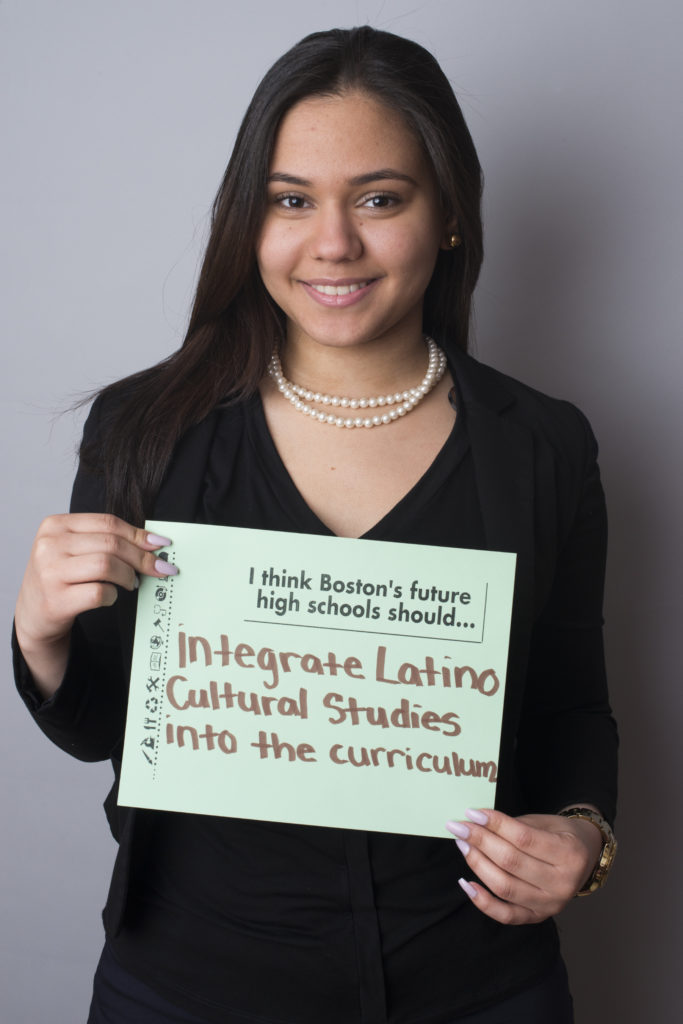
By Isamar Sánchez
Learning about Latino history that is directly connected to my Dominican background is something that kept me interested and engaged. This is something that every Latino student in the Boston Public Schools system should have.
I have always had the privilege of having Latino Studies in both middle school and high school. I cannot imagine what my school experience would be like if I were in a box where I had no knowledge about Latino history. In my humanities Spanish class in tenth grade, I had the opportunity to learn about the dictatorship in the Dominican Republic. Being the daughter of Dominican parents, I have always heard about the dictator Rafael Trujillo but would never have had the chance to study it in depth if it were not for the Latino courses offered at the Margarita Muñiz Academy. Learning about Latino history that is directly connected to my Dominican background is something that kept me interested and engaged. This is something that every Latino student in the Boston Public Schools system should have.
Not having Latino cultural studies in the Boston Public Schools high school curriculum causes Latino students to feel left out of the community. They lose touch with their culture and history. The most serious problem is that they have nothing that can connect to their life and express who they are. Having Latino cultural studies in the curriculum is something that Latino students can immediately hook into.[1]
A serious problem in the Boston Public School system is the high dropout rates and low graduation rates among Latino students. Studies have shown that students can really benefit from having a culturally relevant education. A recent study showed that graduation rates within the Mexican-American student population had strengthened about ten percent after forming part of the Mexican-American Studies class.[2]
Adding Latino cultural studies to the curriculum would not only benefit Latino students, it would teach each and every student the importance of history all over the world. Being more aware of the cultural diversity surrounding you and the important facts of history makes us all understand more about the way things are today. Miren Uriarte, an expert in the field of Latino cultural studies, stated that non-Latino students still benefit from taking Latino cultural studies because it is a chance for them to learn about different cultural background than their own. It also allows those students to feel free and travel to a new world when learning about new cultures.[3]
Making room for all different cultural studies will be even greater. The more diversity that is put into the curriculum, the more exciting it may be. This means that an African-American student can be learning about not only Latino culture, but also Asian culture, European culture, American Indian culture, and vise-versa. Having that bridge connecting who you are at home and at school can really make a difference.
- Miren Uriarte, in discussion with author, January 26, 2016. ↑
- Natalie Gross, “Chicago Schools Launch a Latino Studies Curriculum,” Latino Ed. Beat (blog), Education Writers Association, March 11, 2015, http://www.ewa.org/blog-latino-ed-beat/chicago-schools-launch-latino-studies-curriculum. ↑
- Miren Uriarte. ↑
You must be logged in to post a comment.